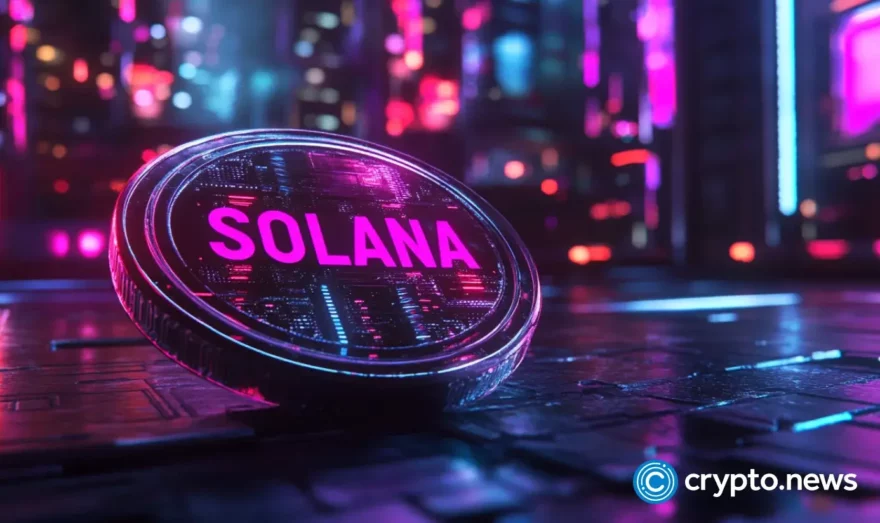Here’s How IOST Became Popular and Accepted by Japanese Regulators

On Sep 8, IOST — the native cryptocurrency oiling the high-performance, fully decentralized, and scalable IOST blockchain network, will get listed on leading Japanese crypto exchange Coincheck.
A huge milestone signaling its entrance and formal acceptance into the stringent but vibrant Japanese market, their basking in glory is however marked with pointed determination revealing their unwavering desire to remain fully compliant while positively contributing towards the development of a sustainable blockchain ecosystem beneficial for all parties.
Compliance for Safety
In a highly regulated scene, the Financial Services Agency (FSA) and the Trading platforms supervision Alliance hold the keys to the vibrant Japanese market for any budding blockchain project.
After yesterday’s announcement, IOST became only but the 29th digital asset approved for trading. But it wasn’t about the listing; the procedure involved is what’s rigorous. CoinCheck deliberately took it upon themselves to introduce strict listing procedures for clients’ sake.
Following a devastating–and reputation damaging– hack that saw CoinCheck lose $550 million worth of NEM, their decision to overhaul their listing systems, and prioritize safety as their overarching goal for the good of the cryptocurrency—which is still at nascence, meant the introduction of extra safety hoops.
IOST Approach to Penetrate the Japanese Market
With compliance as a founding cornerstone and IOST’s active participation in the Japanese blockchain and crypto landscape, their listing on CoinCheck was, aforementioned, not a walk in the park.
For the listing milestone, IOST’s direct involvement–demanding deep investments, is finally paying dividends. IOST is predominantly visible and active in three useful fronts in Japan.
Eager to unlock IOST’s future potential, the project first looked to develop a robust ecosystem as they upgrade existing frameworks to comply with existing/improved Japanese laws.
Second, in the last three years since 2017, IOST continues to develop a holistic technical layout and rollout extensive blockchain education programs.
Third, fast-track and accelerate blockchain adoption and apt development of commercial use cases.
Building a Robust Ecosystem
All these were executed through a series of partners and initiatives which had a direct impact on either demonstrating IOST’s potential and use cases or helping educate users and businesses, specifically highlighting how transformative the blockchain technology can be on their businesses.
Among their first visible partnership in Nov 2018 was their partnership with a leading Japanese cryptocurrency news outlet, Crypto Times. Strategic, the goal was to further expand IOST into the cryptocurrency community—and one of the most active in the world.
Nine months later, Zelo—a top-tier Japanese law firm joined the IOST node ecosystem. The law firm would assist in the development and growth of IOST-based solutions by providing legal services, technology, and business support.
Through this deal, IOST became the first public blockchain to receive direct support from a law firm. Besides, it highlighted IOST’s determination to comply with existing rules. Thereafter, Zelo would help in negotiation with the Japanese Blockchain Association (JBA) and fostering relationships with other Japanese cryptocurrency exchanges.
In the same month, Stir went ahead and supported the IOST staking ecosystem subsequently opening doors for HashHub—a Tokyo-based blockchain studio, to join as a service node.
Even so, the main highlight was the invitation of IOST’s head of Japanese market—Makamoto, and Mr. Takashi Oka of the node partner, PHI, to the Japanese House of Representatives building where they introduced the development and vision of IOST.
Building on last year’s successes—and despite the slowing effects of the novel coronavirus, the IOST Foundation hosted several events in Tokyo after partnering with the Japan Energy Blockchain Enterprise Consortium (EBEC) before their CoinCheck support.
Embarking on an Educational Drive
On the educational front, IOST joined hands with Code Chrysalis and were active throughout 2018 in launching several blockchain-related courses and hackathons as they promote the IOST blockchain in the country.
Also, together with EverSystem, they sponsored a hands-on dApp development event in Nagoya, a few weeks before Terry Wang met with EverSystem’s team members.
For the better part of late 2018 and 2019, there were a series of presentations, meetups/seminars, and workshops. Different speakers spoke and developers were briefed of IOST’s objectives and their angling for compliance.
Solving Problems using the IOST Blockchain
All these efforts catalyzed the rollout of interesting blockchain solutions on IOST. In Nov 2019, EverSystem—a notable node partner, and EIDesign launched a peer-to-peer electricity trading project on IOST.
The project was one of the first large-scale applications ever implemented in Japan meant to empower the country’s power systems.
Six months later, the Japanese Medical Health Tech Venture “inked a deal with IOST to power a medical record platform before SANSEITO—a Japanese political party adopted IOST for digital voting.
With their hard work eventually paying off, it goes on to demonstrate the importance of compliance as part of the gears that will help guide blockchain as an alternative but highly potent solution.
IOST, as BTCManager points out, is keen on open finance. They have so far partnered with several high-profile projects to actualize their goals.
















